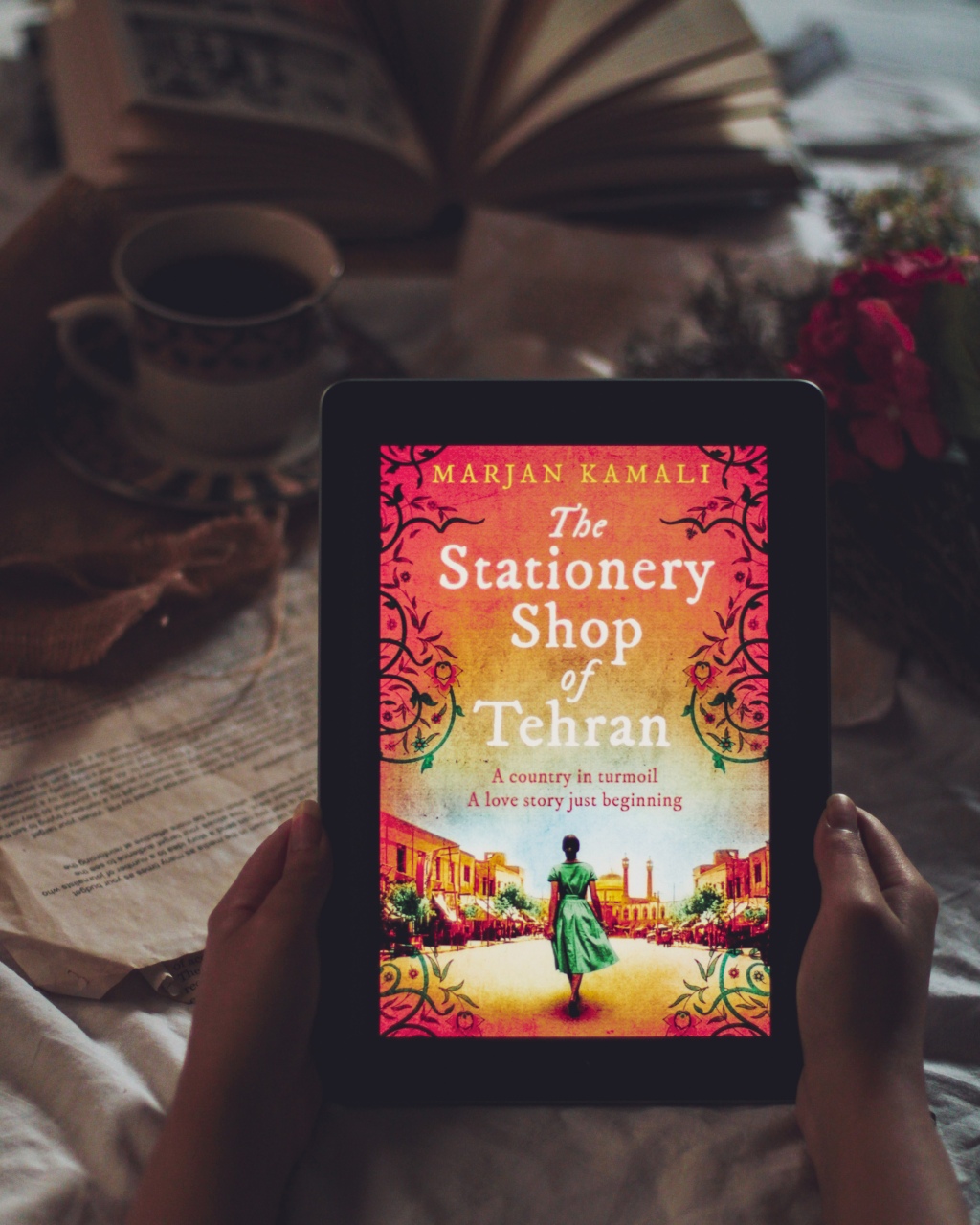Reading The Stationery Shop of Tehran was like being blown away by the winds; the way your body swirls, dancing in defiance against the rising political turmoil, the forces that stifle dissent, and finally landing with a crash in Mr Fakhri’s humble abode, the stationery shop. Iran of the 1950s was bursting in a renewed sense of freedom and nationalism under democratically-elected Prime Minister, Mohammed Mossadegh. But as anti-Mosaddegh protests erupt, and Shah supporters along with British and American forces gain power, the country begins to crumble. While the political upheaval seemed to be simmering with a quiet intensity, a similar passion was brewing in Mr Fakhri’s coveted shop.
Roya, swayed by Rumi’s poetry and translated works( also a testament to Tehran’s growing cultural richness), frequents this quaint stationery shop. While her father openly embraces the new political reforms which allows girls to go to university, Roya seeks solace in the written word. When she meets Bahman, the boy destined to change the world, a political activist with a burning passion for justice, Roya’s world also changes. Mr Fakhri introduces the two lovers who find comfort in his shop, exchanging letters and books, and carving a life for themselves. But just as great things happen in the blink of an eye, far devastating fate awaits the couple.
The political devastation and coup d’etat brings life to a halt. Roya and Bahman decide to meet to finally get married unbeknownst that that same day the Prime Minister will be outed and clashes will leave the country in ruins. As fate would have it, Bahman fails to show up. Years later, Roya will get answers to questions she had buried deep in her heart. All these years, the same questions plague her: Why didn’t Bahman show up?
The beauty of the novel lies in its visceral and evocative description of life in Tehran. From the mouth-watering delicacies to the growing interest in literature and politics, Marjan brings to us a taste of what Iran was like. The Stationery Shop, it’s carefully curated translated novels, the jewel-colored ink, Rumi’s vast collection reflect a life well-lived and a promise of a better future.
This book, with its beautiful prose, and compelling narrative, moves the readers to introspect, to visit history, and believe in love that comes with its own set of discomfort but also to continue to hope that the ending is sometimes better than the beginning.
